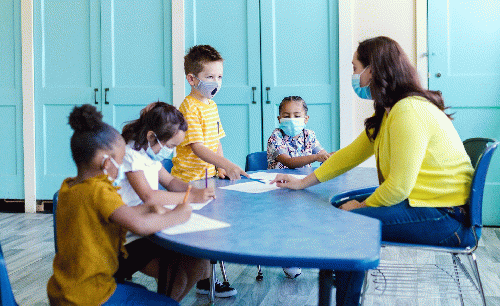Public health measures such as border closing, case and contact tracing, lockdowns and masking remain highly controversial. Certainly, as the covid pandemic has progressed, the economic, educational and developmental impacts of such measures have become more evident. What remains less clear is the degree to which those measures actually reduced covid transmission, case numbers, and hence severe illnesses, long-term sequelae and deaths. That is, after all, the motivation for such unpopular, costly and life-changing interventions.
A recent peer-reviewed study in the journal Science Translational Medicine sheds light on the effectiveness of border closings and lockdowns, using data from Switzerland.
By tracing the appearance and duration of distinct strains of the SARS-CoV-2 virus in Switzerland before, during and after border closing and a partial lockdown, bioinformatician Sarah Nadau and her colleagues found that closing the Swiss borders effectively decoupled Switzerland from the strains of covid circulating in neighboring countries, producing up to a 98% reduction in newly introduced cases.
Similarly, the country's partial lockdown dramatically reduced the effective reproduction number (Re) of the virus from 2.2 to 0.3, that is from rapidly spreading to rapidly disappearing. During the Swiss lockdown, new variants of the covid virus survived just half as long as variants did after the lockdown ended.
The researchers also compared the effectiveness of contact tracing in Switzerland, New Zealand and the UK. While the results in Switzerland were positive, they were not as clear as they were for the border closing and lockdown. A strong positive result was more evident in data from New Zealand and the UK, where contact tracing cut viral transmission by nearly two-thirds.
A separate study in the New England Journal of Medicine assessed the effectiveness of mandatory masking in schools. Harvard public health researcher Tori Cowger and colleagues tracked covid cases as Massachusetts school districts ended mask requirements at different times in the 2021-22 school year. The results were clear and striking"ending masking resulted in an additional 45 cases per 1000 students and staff, or nearly 12,000 extra cases over the subsequent six weeks. Similarly, covid-related absences for students and staff surged by 50% once mask requirements ended.
Although conventional wisdom has it that covid is less dangerous among children and young people than among older people, the authors note that by early 2022, American children and adolescents had a higher incidence of covid than any other age group, and that they do have a significant risk of severe illness, hospitalization, long-covid, and death. In addition, more than 250,000 American children have lost a parent or caregiver to covid. The researchers also note that all of these serious covid outcomes disproportionally impact Black, Latinx and Indigenous children and families.
In short, public health measures including border closings, lockdowns, contact-tracing and masking may have many negative impacts, but they actually work. They significantly reduce covid transmission and hence covid cases, serious illnesses, hospitalizations, long-covid cases and deaths, and can make the difference between a rapidly spreading pandemic and a rapidly declining one.
Clearly, it makes sense to balance the effectiveness of such public-health measures in terms of illness avoided and lives saved against their social, developmental and economic costs. What does not make sense is to ignore or deny one side or the other of that balance. Nor can we afford to relegate such difficult decision-making to the past. As a recent Nature article points out, emerging covid variants, waning immunity and an increasing reluctance to accept preventive measures may be setting us up for yet another costly and potentially deadly covid surge.





